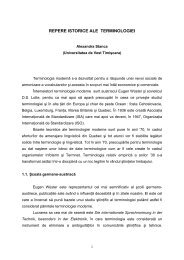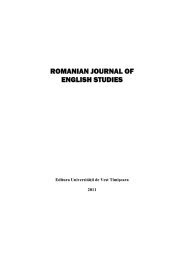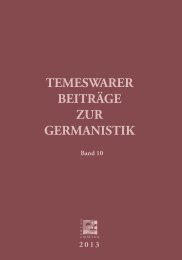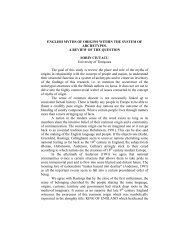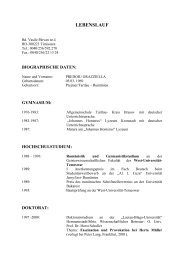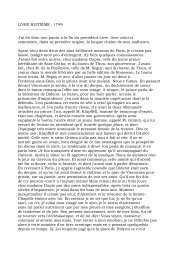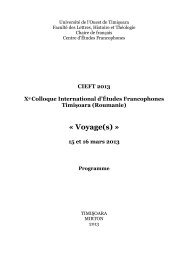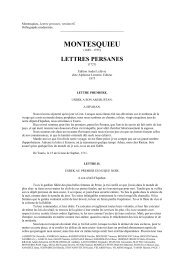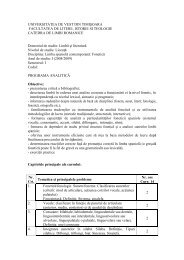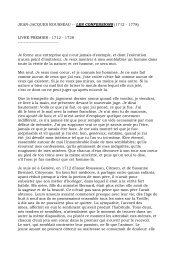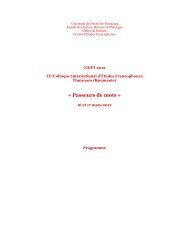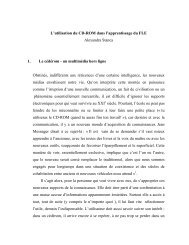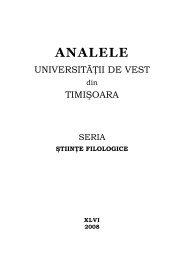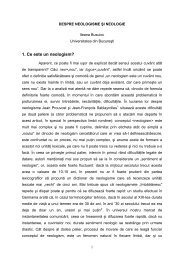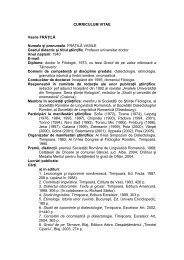TRANSLATION AND MEANING: A CULTURAL- COGNITIVE ...
TRANSLATION AND MEANING: A CULTURAL- COGNITIVE ...
TRANSLATION AND MEANING: A CULTURAL- COGNITIVE ...
You also want an ePaper? Increase the reach of your titles
YUMPU automatically turns print PDFs into web optimized ePapers that Google loves.
e.g. ST: “This Regulation shall enter into force on the 20 th day following its<br />
publication in the Official Journal of the European Union.”<br />
TT: “Prezentul regulament intră în vigoare în a douăzecea zi de la publicarea în<br />
Jurnalul Oficial al Uniunii Europene.”<br />
(32003R0492)<br />
or to some other legislative document that bears relevance in that specific<br />
context:<br />
e.g. ST: “The provisions of Council Directive 89/391/EEC of 12 June 1989 on the<br />
introduction of measures to encourage improvements in the safety and health of<br />
workers at work remain fully applicable …”<br />
TT: “Dispoziţiile Directivei Consiliului 89/391/CEEdin 12 iunie 1989 privind<br />
punerea în aplicare de măsuri pentru promovarea îmbunătăţirii securităţii şi<br />
sănătăţii lucrătorilor la locul de muncă rămân pe deplin aplicabile …”<br />
(32003L0088)<br />
Thirdly, many of the Subject noun phrases present in the EU texts<br />
under analysis denote various concepts specific to the sphere to which the<br />
legal provisions of the document in question apply:<br />
e.g. ST: “Classified documents shall be processed in accordance with the rules in<br />
force on security.”<br />
TT: “Documentele clasificate se prelucrează în conformitate cu normele în<br />
vigoare privind siguranţa.”<br />
(32002D0047)<br />
As the examples offered above well illustrate, the EU texts generally<br />
thematize concepts of central importance for the propositional content that<br />
these documents are meant to convey. In other words, these important<br />
concepts stand for what the sentences making up the texts “are about”,<br />
creating, at the same time, the framework within which what is said should<br />
be understood. This characteristic of the EU documents may be explained<br />
by the requirement for clarity that legal texts in general must meet.<br />
However, the texts in my corpus also present cases when the theme<br />
position is occupied by elements other than the grammatical subject. Thus,<br />
there are quite frequent examples of clauses which place an Adverbial<br />
Phrase in initial position. The EU documents do not seem to show any<br />
preference for the thematization of one particular kind of Adverbial, since



